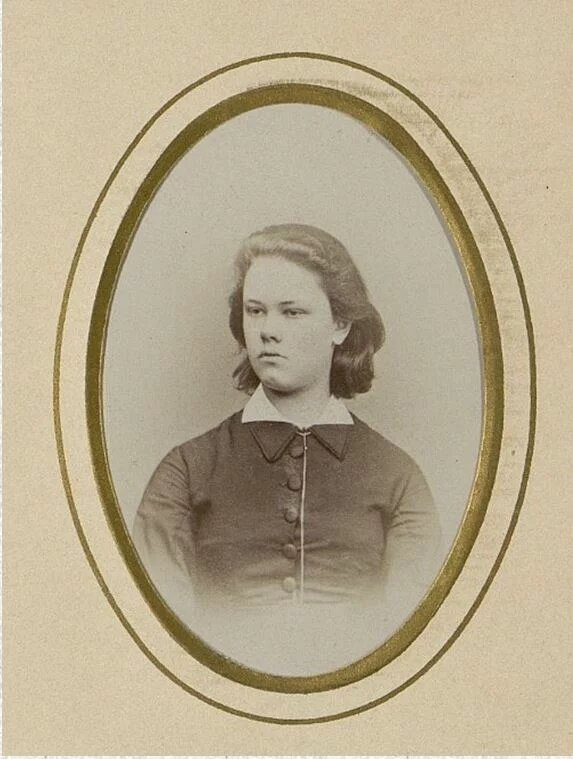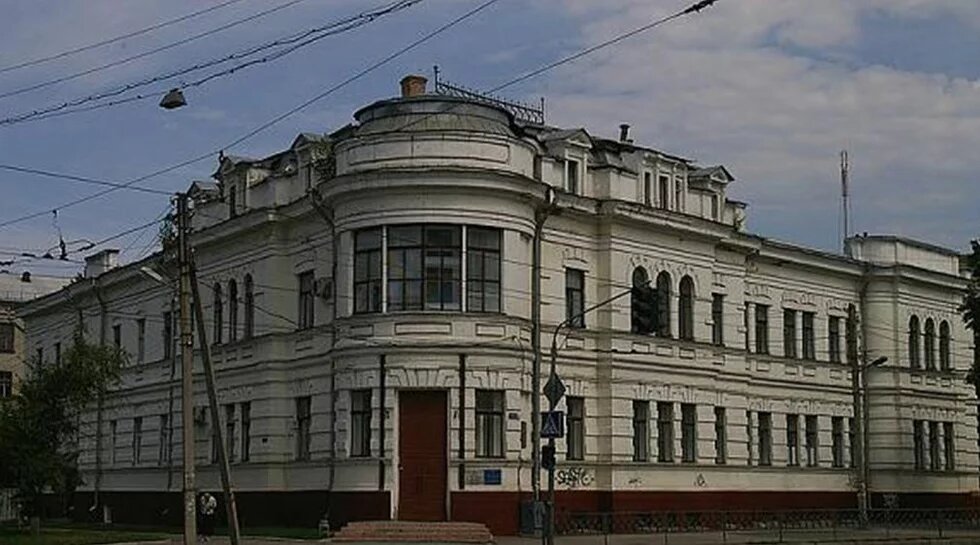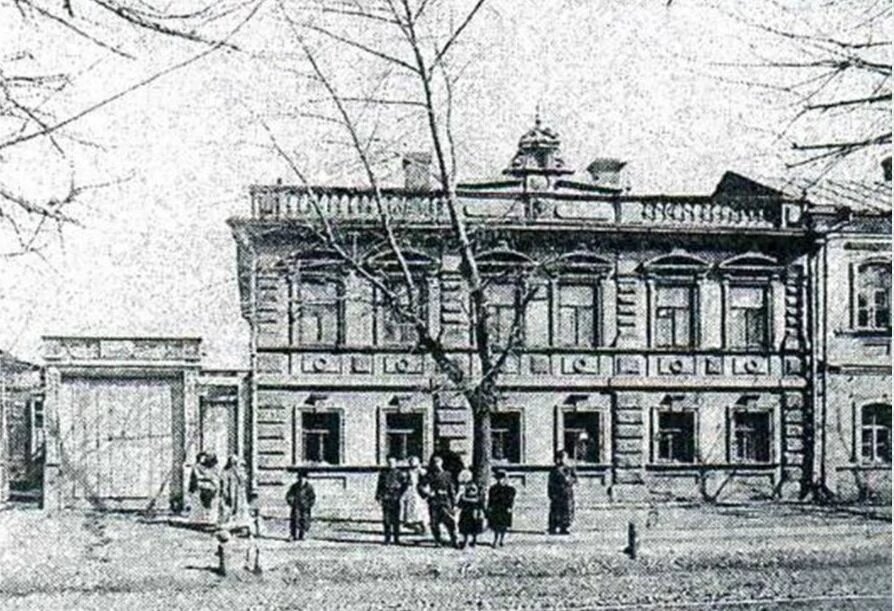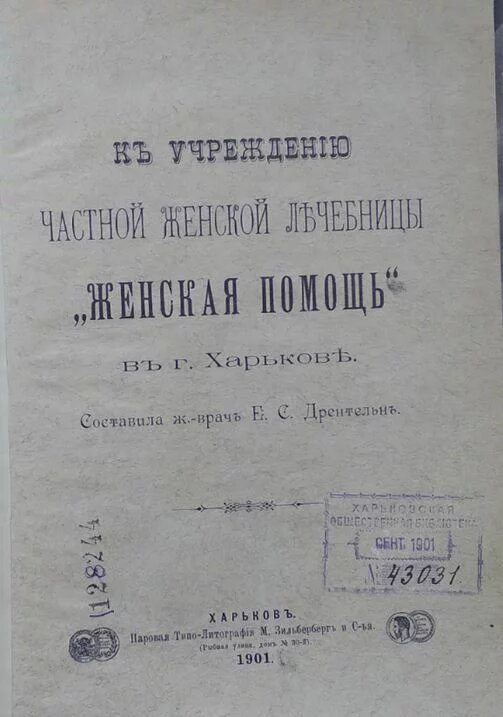

Yelyzaveta Serhiivna Drentel’n (1857–1923) was one of the first female gynecologists who, through her work, contributed to improving women's health, spreading knowledge about pregnancy, childbirth, and sexual relations, while introducing a modern scientific approach.
After receiving her education in the capital of the empire, she worked as a physician in various cities and, in 1895, settled in Kharkiv. There, she became the head of the gynecology department at the city hospital, and later — the founder of a separate hospital called "Women's Aid."
By securing funds from philanthropists, she organized one of the largest gynecological hospitals and maternity clinics in the city, providing consultations, examinations, diagnostics, and treatment for women, with a portion of services offered free of charge.
Another of Yelyzaveta Serhiivna’s innovations was her insistence that hospitals operate year-round. The E. S. Drentel’n Clinic and the "Women's Aid" hospital she established both remained open throughout the year without closing for summer holidays.
Even after transferring the leadership of the clinic to the local zemstvo (district administration), Drentel’n set two conditions: free admission of patients and uninterrupted year-round service.
An analysis of the clinic’s patient demographics shows that half of the women were rural residents, with most working as housewives, maids, seamstresses, or vendors. Thus, her work was focused on expanding medical care for low-income women.
Over time, this hospital transitioned from a local to a zemstvo (district) institution and became the largest facility providing medical care for women. In its first year of operation alone, 195 babies were born there, and around 2,000 patients were admitted.
Yelyzaveta Serhiivna combined her medical practice with educational activities: she delivered public lectures on women's health and hygiene, published her research to disseminate essential knowledge for women, and collaborated with the Kharkiv Society for Mutual Aid of Working Women, offering free consultations to its members.
After transferring the hospital to the zemstvo (district authority), Drentel’n returned to private practice and publicist activities.
In her writings, she sought to rethink the role of women in history. In her monograph "Man and Woman Facing the Future," she wrote:
"In our time, the women's movement is not only a historical necessity but also a biological one. It is a reaction to existing extremes, to the disruption of life's balance, which threatens its very existence. It is a cry for the self-preservation of women."
She reflected on how to bring women into the public sphere:
"If a woman now feels the need to free herself from the chains imposed upon her, she owes this aspiration not only to the awakening of her self-awareness but also to the conditions of life that have made her liberation possible."
After 1914, her trace is lost. There is no information about how she lived through the revolution and the First World War, nor about the exact date of her death or her place of burial.
Her work in several hospitals, various associations, and her active publicist activities demonstrate that Yelyzaveta Drentel’n dedicated her life to advocating for progressive views on women and the vital importance of preserving their reproductive health.
Unfortunately, Drentel’n’s name remains almost unknown today, and her contribution to the city and the country remains unrecognized.
Lecturer: Olha Nikolenko, Doctor of Historical Sciences, Professor at H. S. Skovoroda Kharkiv National Pedagogical University, and volunteer at the Gender Culture Center.
You can watch the full lecture via the link.
This translation was completed with the assistance of ChatGPT


